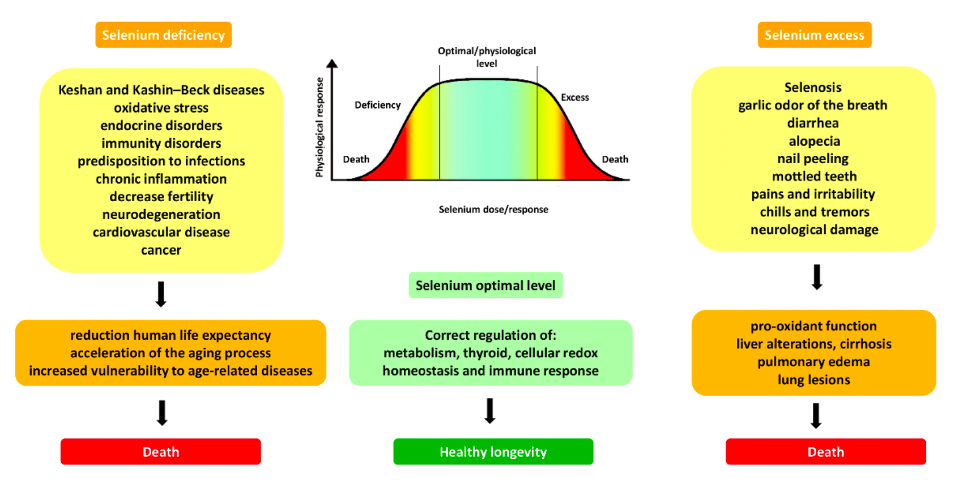Aging is characterized by an imbalance between the damage inflicted by reactive oxygen species and the antioxidant defenses of the organism. The trace element selenium is considered an important dietary supplement that can improve health as it possesses valuable antioxidant properties.
It may remodel the gradual and spontaneous biochemical and physiological changes caused by oxidative stress, potentially leading to disease prevention and healthy aging. The trace element selenium, in the form of selenoproteins, improves antioxidant defense, immune function, and metabolic homeostasis.
About 1 billion people worldwide are affected by selenium deficiency, which may have significant adverse effects on human health. Inadequate selenium status may reduce human life expectancy by accelerating the aging process or increasing vulnerability to various diseases, including immunity dysfunction and cancer risk. Inadequate dietary intake of selenium can lead to cognitive dysfunction and heart failure in the elderly. Nutritional doses of selenium are effective in stimulating the immune system against infectious diseases or cancer, and organic compounds containing selenium play a key role in the health maintenance of aging individuals.
In general, the health effects of selenium are also related to its dose (shown below), with a narrow margin between its essential level and the amount associated with toxicity. Selenium possesses antioxidant properties at nutritional levels and pro-oxidant effects at supernutritional levels.

Bjørklund, G., Shanaida, M., Lysiuk, R., Antonyak, H., Klishch, I., Shanaida, V., & Peana, M. (2022). Selenium: an antioxidant with a critical role in anti-aging. Molecules, 27(19), 6613. [Link]
